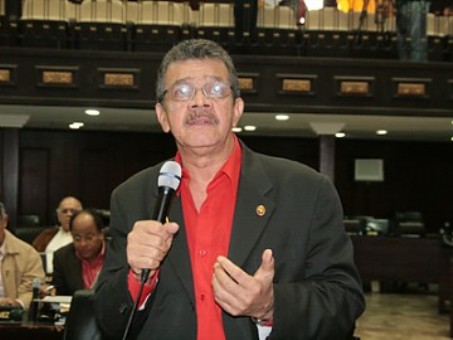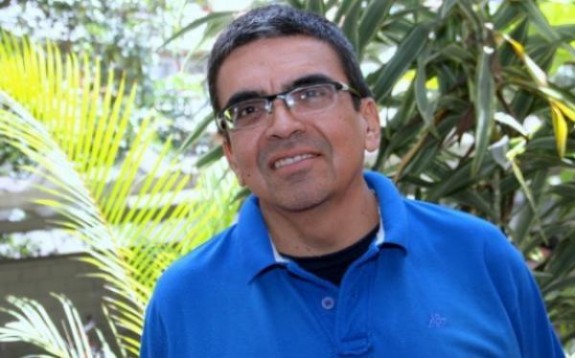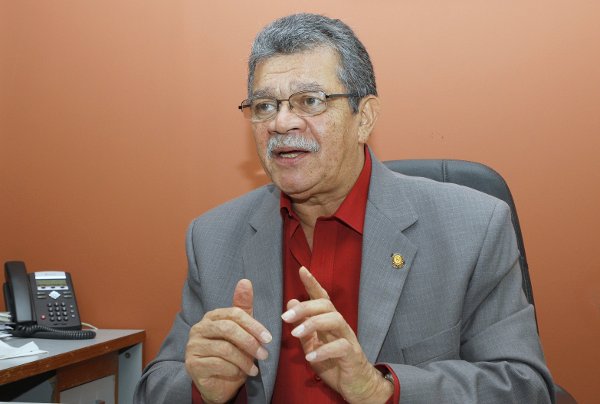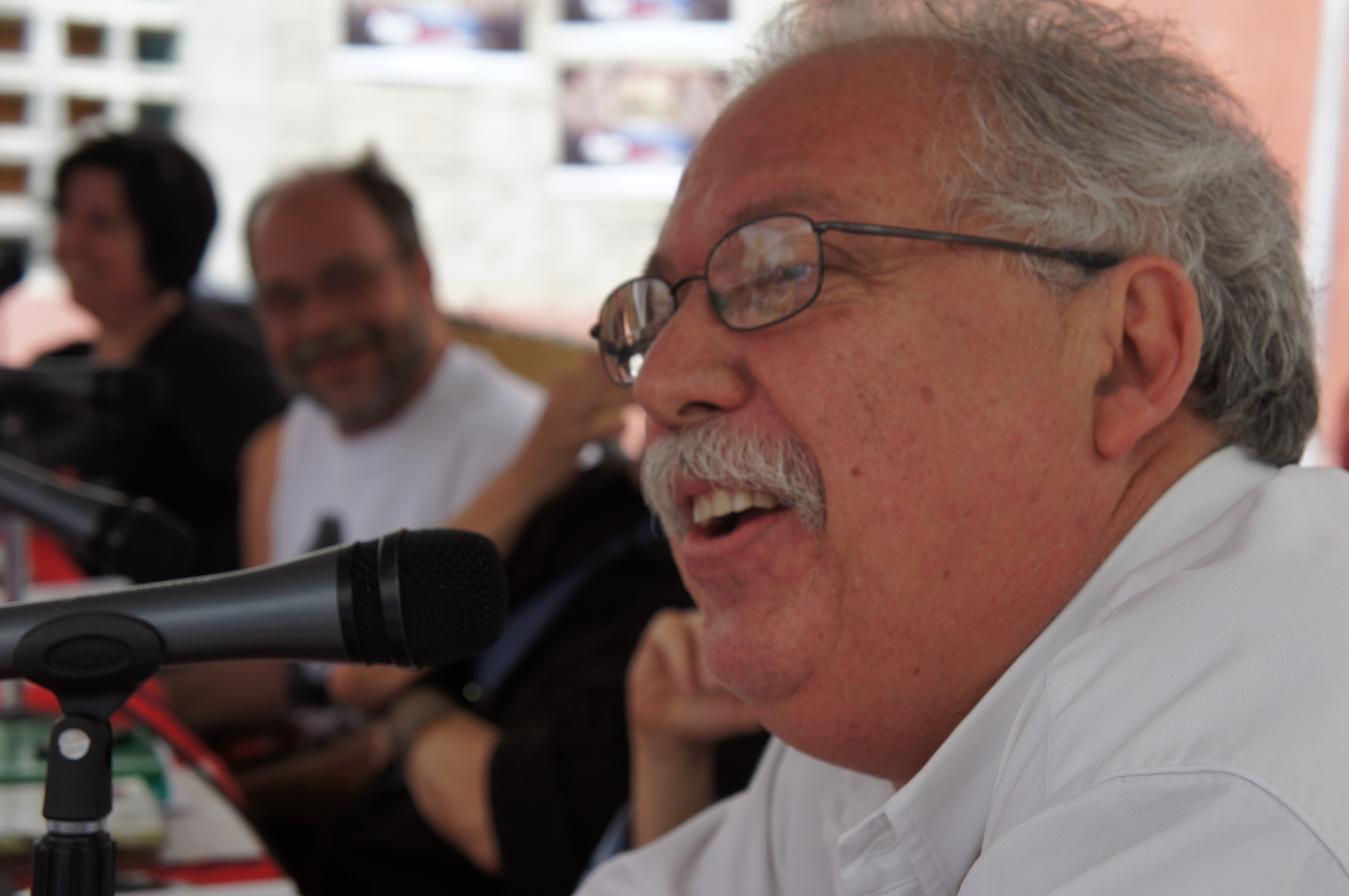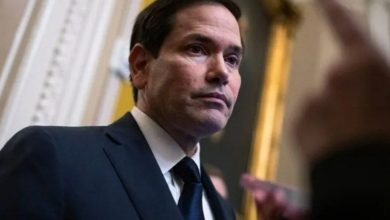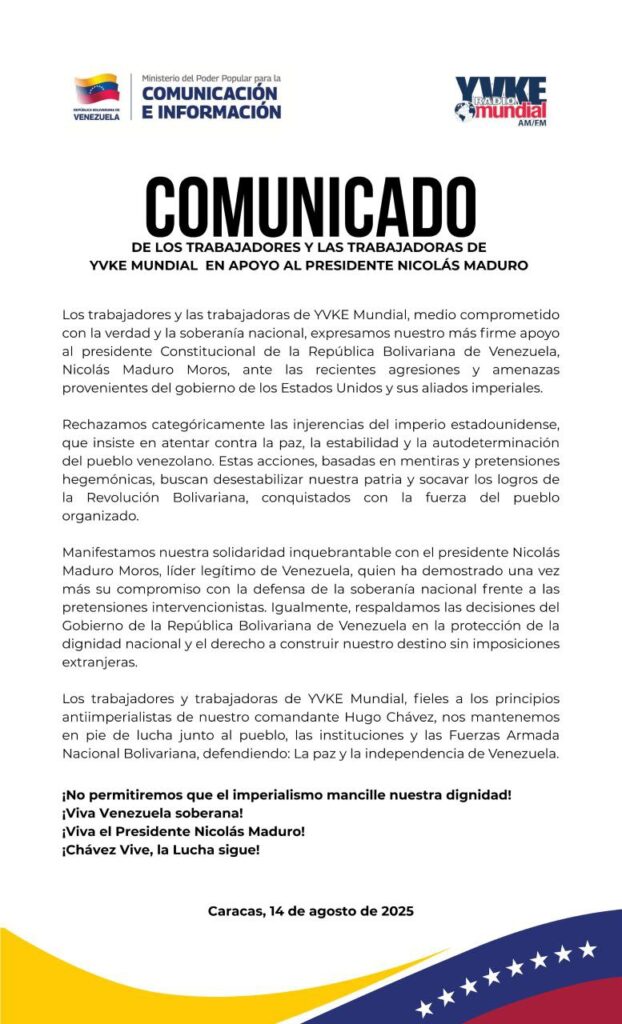Sí al diálogo, no a la intervención en Venezuela
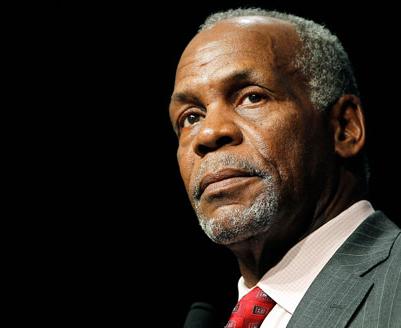
Hace poco me dirigí a la Organización de los Estados Americanos (OEA) en Washington, DC, con la esperanza de despertar interés en la búsqueda de las compensaciones que se les debe a muchos de los descendientes de africanos de nuestro hemisferio. Nunca me habría imaginado que pocos meses después, el Secretario General de ese organismo regional, Luis Almagro, estaría emprendiendo una campaña intervencionista contra uno de nuestros queridos vecinos del Caribe. Por no decir que se trata de un estado del Caribe que ha hecho tanto en los últimos años para alzar la voz de sus descendientes africanos y los de la región.
Si bien es cierto que muchos pueden tener fuertes opiniones acerca de la actual causa de la polarización en Venezuela y sobre las graves carencias económicas que nuestros hermanos y hermanas afrontan en este país, nosotros como ciudadanos de las Américas, como residentes del Caribe, y también aquellos que cuentan con este organismo regional para que represente los intereses de nuestra gente de la mejor manera, no debemos permitir que un hombre use su posición de liderazgo para emprender una campaña de intervención política en contra de una de nuestras naciones hermanas y estado miembro. La OEA es un foro que se debe utilizar para resolver los problemas más acuciantes de nuestros ciudadanos, no para dividirlos y envalentonar a aquellos que serían capaces de utilizar métodos ilegales y violentos para lograr un cambio político a toda costa.
Huelga decir que la situación en la OEA es preocupante. En una reciente reunión en la República Dominicana, 19 países votaron a favor de que se inicie una investigación para determinar si el Secretario General Almagro violó las normas institucionales del mismo órgano que le ha encomendado su dirección; en esencia, más de la mitad de esa organización teme que Almagro pueda tener una agenda política.
Como Secretario General de la OEA, Almagro ha hecho declaraciones que son totalmente inapropiadas y simplemente no resisten el escrutinio. De hecho, parecen estar orientadas a cuestionar al Gobierno democráticamente electo de Venezuela y a sus instituciones, en lugar de representar la opinión y la voluntad de los Estados miembros de la OEA.
Recientemente, Almagro apoyó y parece insistir en ser la punta de lanza de la invocación de la Carta Democrática en contra de Venezuela, lo que podría resultar en la remoción y aislamiento del país del organismo regional. Venezuela pronto estaría en "una situación de ilegitimidad", según afirmó, y "la crisis institucional en Venezuela exige cambios inmediatos en el proceder del poder ejecutivo".
Si bien los venezolanos ciertamente se enfrentan a penurias económicas en medio de una economía petrolera mundial que está experimentando su recesión más profunda desde la década de 1990, aunadas a las sanciones por parte de Estado Unidos que llevan ya diez años, y han alentado a algunas instituciones financieras a alejarse de Venezuela, hay poca evidencia de que exista una ruptura de las instituciones o un gobierno ilegítimo. Estas declaraciones parecen ser sólo temas de conversación de la oposición que el Secretario General parece decidido a reiterar.
Es interesante notar que al mismo tiempo que se ha venido llevando a cabo en la OEA esta campaña donde se promociona una intervención en contra de nuestros hermanos y hermanas de Venezuela, Estados Unidos ha anunciado conversaciones con Venezuela al más alto nivel para mejorar las relaciones. El diálogo y la construcción de relaciones sobre la base de la igualdad y el respeto a la soberanía son elementos indispensables para la democracia y la paz en las Américas y, de hecho, en todo el mundo.
Si los 35 Estados miembros de esta organización regional realmente desean ratificar esta carta y alcanzar "un orden de paz y justicia para promover su solidaridad, para fortalecer su colaboración y para defender sus soberanía, su integridad territorial y su independencia", tenemos que asegurarnos de que quienes nos representan en estas plataformas hemisféricas lo hagan con justicia y no sucumban a las presiones políticas del Norte.
Durante los últimos 12 años, sin importar si a través de la cancelación de la deuda nacional, el suministro de energía, electricidad e infraestructura, el compromiso a través de PetroCaribe o descuentos en el combustible para calefacción para aquellos de nosotros en el Norte que hemos tenido que elegir entre tener calefacción o darle comida a nuestras familias, Venezuela ha sido francamente un buen vecino.
Cuando amigos como Venezuela necesitan de nosotros, deberíamos proporcionales ayuda colectiva, no promover la intervención. Proteger la legitimidad de la OEA y no permitir que sea utilizada como una herramienta para la intervención contra un pueblo caribeño amigo, uno que ha apoyado continuamente nuestras aspiraciones regionales como el desarrollo y la autodeterminación de todos nuestros ciudadanos, es un asunto de suma importancia en este momento de la historia.
*Danny Glover es un actor galardonado, artista-ciudadano y defensor de los derechos humanos.
———
Yes to dialogue, no to intervention in Venezuela
By Danny Glover*
I recently addressed the Organization of American States (OAS) in Washington, DC, in the hopes of sparking interest in the quest for reparations that so many of our hemisphere’s African descendants are due. I never would have imagined that a few short months later, the secretary general of that regional body, Luis Almagro, would be waging an interventionist campaign against one of our beloved Caribbean neighbours. Not to mention a Caribbean state that has done so much in recent years to lift up the voice of its African descendants and those of the region.
While many may have strong opinions about the current cause of polarisation in Venezuela and the serious economic shortcomings that our sisters and brothers there face, we as citizens of the Americas, residents of the Caribbean, and those who count on this regional body to represent our people’s best interests, must not allow one man to use his position in leadership to wage a campaign of political intervention against one of our sister nations, and a member state.The OAS is a forum that should be used to solve our citizens’ most pressing problems, not divide them and embolden those who would use illegal and violent methods to bring about political change at all costs.
Needless to say, the situation within the OAS is worrisome. At a recent meeting in the Dominican Republic, 19 countries voted in favour of opening an investigation into whether Secretary General Almagro had violated the institutional norms of the very body he is tasked with leading; in essence more than half of that body was concerned that he may have a political agenda.
As secretary general of the OAS, Almagro has made statements that are completely inappropriate and simply don’t hold up under scrutiny. They seem, in fact, to be aimed at calling into question the democratically elected Government of Venezuela and its institutions, rather than representing the opinion and will of OAS member states.
Recently, he supported and appears to insist on spearheading the invocation of the Democratic Charter against Venezuela that could end up removing and isolating the country from the regional body. Venezuela would soon be in "a situation of illegitimacy" he stated, and "the institutional crisis in Venezuela demands immediate changes in the actions of the executive branch".
While Venezuelans are certainly facing economic hardships in the midst of a global oil economy experiencing its deepest downturn since the 1990s, coupled with a decade-old US sanctions that have encouraged some financial institutions to disengage with Venezuela, there is little evidence of a breakdown of institutions or an illegitimate Government. These statements appear to be nothing more than opposition talking points which the secretary general seems intent on reiterating.
It is interesting to note that at the same time that this campaign promoting intervention against our brothers and sisters of Venezuela has been taking place in the OAS, the United States has announced talks with Venezuela at the highest levels to improve relations. Dialogue and relationship-building on the basis of equality and respect for sovereignty are indispensable elements for democracy and peace across the Americas and, indeed, throughout the world.
If the 35 member states of this regional organisation truly desire to uphold its charter and achieve "an order of peace and justice, to promote their solidarity, to strengthen their collaboration, and to defend their sovereignty, their territorial integrity, and their independence", we must ensure that those who represent us in these hemispheric platforms do so justly and do not succumb to political peer pressure from the North.
Over the past 12 years, whether it be through the cancelling of national debt, providing energy, electricity and infrastructure, engagement through PetroCaribe or discounted heating oil to those of us in the North who have had to choose between heat or food for our families, Venezuela has been nothing short of a good neighbour.
When friends like Venezuela are in need we should be providing collective help, not promoting intervention. Safeguarding the legitimacy of the OAS and not allowing it to be used as a political tool for intervention against a fellow Caribbean nation, one that has continuously supported our regional aspirations, just development and self-determination for all of our citizens, is at this time in history a matter of the utmost importance.
*Danny Glover is an award-winning actor, citizen-artist, and human rights advocate.



